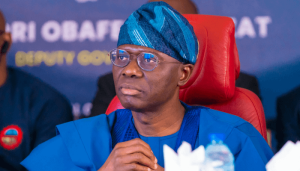e-Naira will deepen financial inclusion says CIBN

The Chartered Institute of Bankers of Nigeria (CIBN) has commended the introduction of the country’s first digital currency, eNaira, saying it was part of measures to deepen financial inclusion and integrate millions of unbanked Nigerians into the banking system.
Bayo Olugbemi, president and chairman of council, who spoke at the 56th annual bankers dinner of the institute, noted that while the modality for the operation of the Central Bank Digital Currency (CBDC) is being fine-tuned, the launch of the electronic currency was a step in the right direction.
He commended CBN governor, Godwin Emefiele for the innovative introduction of eNaira, saying” I have no doubt in my mind that it is a welcome development and a step in the right direction.
“Equally worthy of note is the improvement, though slight, being witnessed in the exchange rate of the Naira. I wish to call for its sustenance. We are certainly working in interesting times with global growth rate at its lowest and traditional norms being challenged on a daily basis.”
Olugbemi, who was attending his last CIBN dinner as the president of the institute, would be handing over the mantle of leadership of the institute by May 2022. He noted that his tenure builds “on the solid foundation laid by his predecessors, rooted in the tradition of constantly leaning forward into the future.
He thanked members of the institute for their support in the implementation of the A-TEAM Agenda of his administration. “I want to assure you that the Institute will continue to devote its resources to the development of competencies whilst strengthening observance of ethics and professionalism in the banking industry.
He said traditionally, the annual bankers dinner is the “CBN Governor’s Day” because it affords stakeholders’ the rare privilege of interacting and listening to the Governor as he examines critical issues and fundamentals which has affected the banking industry within the year.
Read also: Accelerating financial inclusion to reach the unbanked
In his keynote address, the Governor of the Central Bank of Nigeria (CBN), Godwin Emefiele who was the Special Guest of Honour stated that “In less than 4 weeks since its launch, almost 600,000 downloads of the e-Naira application have taken place. “Efforts are ongoing to encourage faster adoption of the e-Naira by Nigerians who do not have smartphones.
“The support of the financial industry will be critical in the ongoing deployment of the e-Naira and efforts are ongoing to encourage continued partnership between the CBN and stakeholders in the financial industry,’’ he said.
The CBN governor noted that building a robust payment system that would provide cheap, efficient, and faster means of conducting payments for most Nigerians have always been the focus of the apex bank.
Emefiele said that total transaction volumes using digital channels more than doubled between 2018 and 2020, as volumes rose from 1.3 billion to over 3.3 billion financial transactions in 2020.
He said that digital payment channels also helped to support continued conduct of business activities during the lockdown, adding that the banking sector robust payment system has continued to evolve towards meeting the needs of households and businesses in Nigeria, reflective of the confidence in the payment system, indicating that between 2015 and September 2021, about US$900 million has been invested in firms run by Nigerian founders.
Emefiele also stated that the policies created to ensure stability in the exchange rate saw more transactions flowing through the official Investors & Exporters FX window (I&E FX Window) which raised its average daily Fx turnover to $250 million from $40 million in April 2020.
Babajide Sanwo-Olu, governor of Lagos State, in his remarks stated that bankers “must ensure that the fundamental economic indicators, both micro and macro, of our economy, are a true reflection of what the realities are in the various sectors of the economy.”
Sanwo-Olu said, “We will certainly need to review the traditional economic and monetary models in the face of changing realities and the desire to achieve maximum impact and outcome vis a vis policy objectives.
“But even as we do this, we must never lose sight of our primary mandates as institutions and organizations. He said the funds banks deploy must create jobs, boost exports, build capacity, and guarantee prosperity for significant numbers of our population,” he said.








